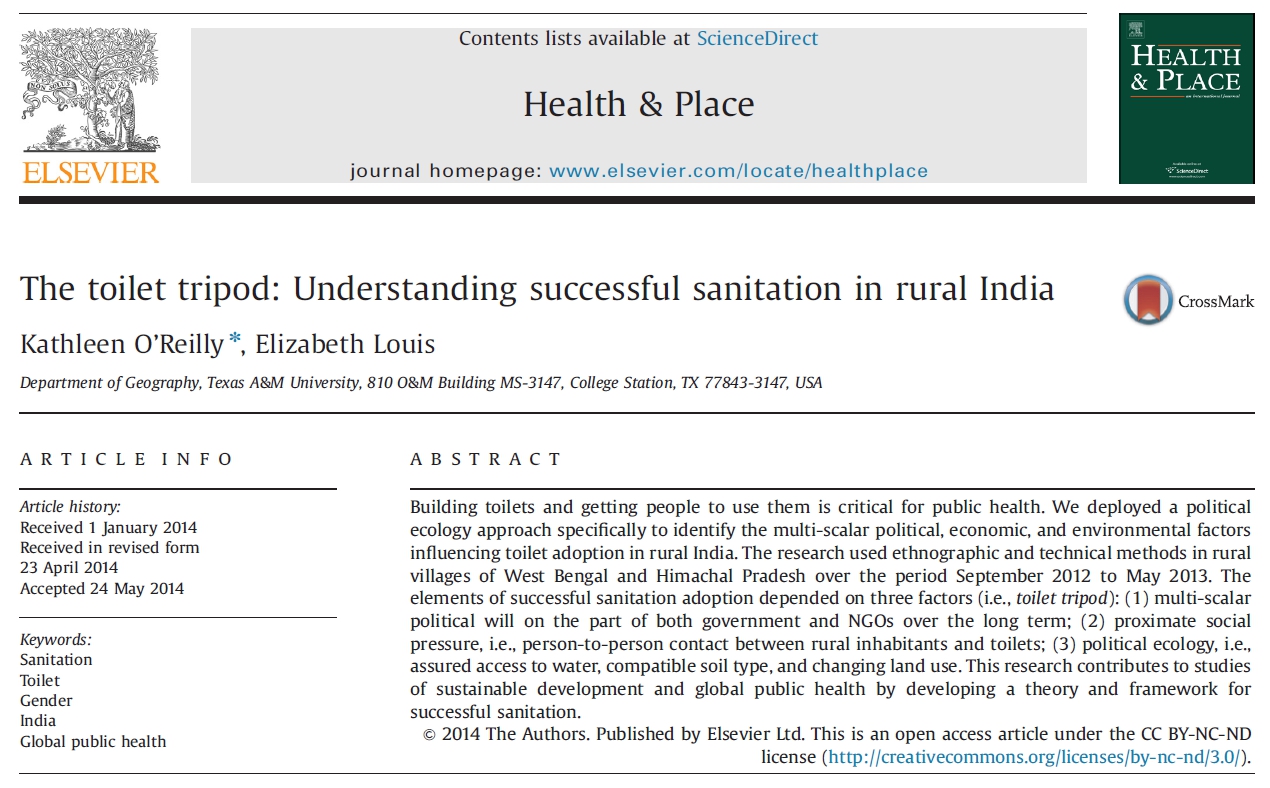The toilet tripod: Understanding successful sanitation in rural India
O’Reilly, K., Louis, E. (2014)

Published in: 2014
Publisher:
Elsevier
Author:
O’Reilly, K., Louis, E.
Uploaded by:
SuSanA secretariat
Partner profile:
common upload
4198 Views
48 Downloads
Content - Summary
Building toilets and getting people to use them is critical for public health. We deployed a political ecology approach specifically to identify the multi-scalar political, economic, and environmental factors influencing toilet adoption in rural India. The research used ethnographic and technical methods in rural villages of West Bengal and Himachal Pradesh over the period September 2012 to May 2013. The elements of successful sanitation adoption depended on three factors (i.e., toilet tripod): (1) multi-scalar political will on the part of both government and NGOs over the long term; (2) proximate social pressure, i.e., person-to-person contact between rural inhabitants and toilets; (3) political ecology, i.e., assured access to water, compatible soil type, and changing land use. This research contributes to studies of sustainable development and global public health by developing a theory and framework for successful sanitation.
Additional information
Creative Commons License
Bibliographic information
O’Reilly, K., Louis, E. (2014). The toilet tripod: Understanding successful sanitation in rural India. Elsevier
Filter tags
East Asia & Pacific English Politicians and local decision makers














